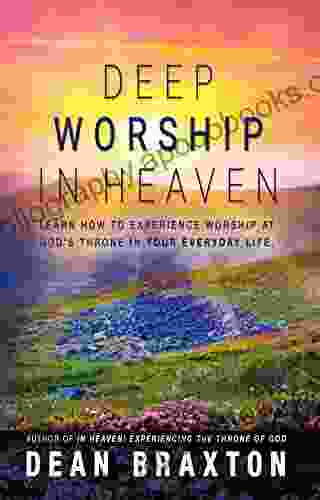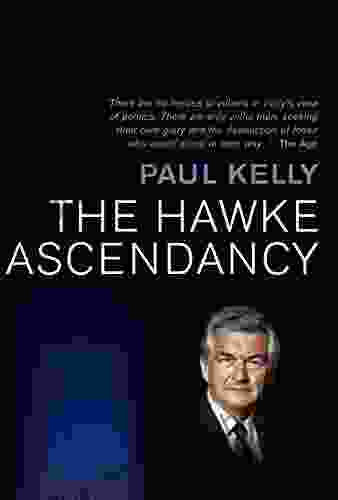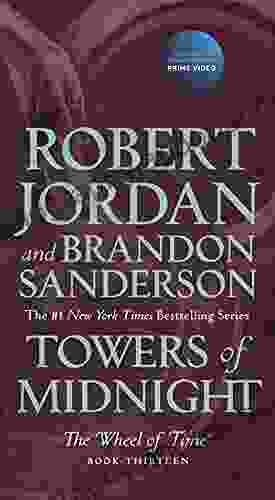Postcolonial Theory and Avatar Film Theory in Practice: Interrogating Cultural Hegemony and Embracing Indigenous Perspectives

In the realm of cultural analysis, postcolonial theory and film theory have emerged as powerful tools to critically examine the enduring legacies of colonialism and its pervasive influence on contemporary society. James Cameron's epic science fiction film, Avatar, serves as a poignant and thought-provoking case study for exploring the intricate intersections of these theoretical frameworks, inviting us to delve into a cinematic landscape that both reflects and challenges our understanding of cultural hegemony, indigenous representation, and the interconnectedness of humanity and the natural world.
4.4 out of 5
| Language | : | English |
| File size | : | 1069 KB |
| Text-to-Speech | : | Enabled |
| Screen Reader | : | Supported |
| Enhanced typesetting | : | Enabled |
| Word Wise | : | Enabled |
| Print length | : | 184 pages |
| X-Ray for textbooks | : | Enabled |
Postcolonial Theory: A Lens for Deconstructing Colonial Discourses
Postcolonial theory, as a critical approach to analyzing literature, history, and culture, provides a framework for understanding the lasting effects of colonialism. It deconstructs the power dynamics and ideological assumptions that underpinned European colonialism, highlighting the ways in which colonized peoples and cultures were marginalized, exploited, and oppressed.
Postcolonial theory challenges the dominant narratives that have shaped our understanding of history, often privileging the perspectives of colonizers over those of the colonized. It seeks to uncover the hidden histories and experiences of colonized peoples, giving voice to their struggles, aspirations, and resistance against colonial domination.
Avatar as a Postcolonial Critique
James Cameron's Avatar, set on the fictional planet of Pandora, presents a compelling postcolonial allegory that exposes the destructive consequences of cultural imperialism. The film depicts the conflict between the indigenous Na'vi people and the human mining corporation, the Resources Development Administration (RDA),which seeks to exploit Pandora's valuable resources.
Through its portrayal of the Na'vi as a proud and spiritually connected indigenous culture, Avatar critiques the dehumanizing and environmentally destructive practices of colonialism. The RDA's treatment of the Na'vi, driven by greed and a desire for control, mirrors the historical experiences of indigenous peoples around the world who have faced displacement, dispossession, and cultural genocide.
Moreover, Avatar challenges the Western worldview that often portrays indigenous cultures as primitive and inferior. The Na'vi are depicted as possessing a deep understanding of their environment and a profound respect for all living creatures. Through their spiritual practices and their intimate connection with nature, the Na'vi embody an alternative way of thinking and living that stands in stark contrast to the materialistic and exploitative ethos of the RDA.
Indigenous Representation: Navigating Authenticity and Appropriation
Avatar's portrayal of the Na'vi has sparked important discussions about indigenous representation in film and media. While the film has been praised for its groundbreaking visual effects and its sympathetic depiction of a fictional indigenous culture, it has also faced criticism for its potential to perpetuate stereotypes and to oversimplify the complexities of indigenous experiences.
In creating the Na'vi, James Cameron consulted with anthropologists and indigenous leaders to ensure a degree of cultural authenticity. However, some critics argue that the film ultimately presents a romanticized and idealized vision of indigenous life, glossing over the real-world challenges faced by indigenous communities.
The debate over indigenous representation in Avatar highlights the importance of ethical and respectful approaches to cultural portrayal. It is crucial to avoid reducing indigenous cultures to exotic caricatures or using them as mere props in a narrative that primarily serves the interests of a non-indigenous audience.
Embracing Environmentalism: Nature as a Site of Colonial Struggle
Beyond its critique of cultural imperialism, Avatar also serves as a powerful allegory for environmentalism. The film depicts the beauty and fragility of Pandora's natural world, which is under threat from the RDA's destructive mining operations.
Through the eyes of Jake Sully, the protagonist who experiences both the human and Na'vi perspectives, Avatar invites us to reflect on our own relationship with the environment. It exposes the devastating consequences of environmental degradation and highlights the interconnectedness of all living beings.
The film's message of environmentalism is particularly relevant in the context of postcolonial theory. Colonization often involved the exploitation and degradation of indigenous lands and resources. Avatar reminds us that the struggle for indigenous rights and the fight to protect the environment are inextricably linked.
: Towards a Postcolonial Cinematic Imagination
Avatar's exploration of postcolonial themes, its nuanced portrayal of indigenous cultures, and its powerful environmental message make it a significant contribution to contemporary cinema. The film has sparked important conversations about the enduring legacies of colonialism, the complexities of indigenous representation, and the urgent need to protect our planet.
Avatar challenges us to rethink our assumptions about culture, power, and the environment. It invites us to embrace a postcolonial cinematic imagination that is inclusive, respectful, and mindful of the interconnectedness of all living beings.
Through its groundbreaking storytelling and stunning visuals, Avatar serves as a powerful reminder that cinema has the potential to not only entertain but also to educate, challenge, and inspire. It is a film that will continue to resonate with audiences for years to come, prompting us to reflect on the complexities of our own world and our place within it.
4.4 out of 5
| Language | : | English |
| File size | : | 1069 KB |
| Text-to-Speech | : | Enabled |
| Screen Reader | : | Supported |
| Enhanced typesetting | : | Enabled |
| Word Wise | : | Enabled |
| Print length | : | 184 pages |
| X-Ray for textbooks | : | Enabled |
Do you want to contribute by writing guest posts on this blog?
Please contact us and send us a resume of previous articles that you have written.
 Book
Book Novel
Novel Page
Page Chapter
Chapter Text
Text Story
Story Genre
Genre Reader
Reader Library
Library Paperback
Paperback E-book
E-book Magazine
Magazine Newspaper
Newspaper Paragraph
Paragraph Sentence
Sentence Bookmark
Bookmark Shelf
Shelf Glossary
Glossary Bibliography
Bibliography Foreword
Foreword Preface
Preface Synopsis
Synopsis Annotation
Annotation Footnote
Footnote Manuscript
Manuscript Scroll
Scroll Codex
Codex Tome
Tome Bestseller
Bestseller Classics
Classics Library card
Library card Narrative
Narrative Biography
Biography Autobiography
Autobiography Memoir
Memoir Reference
Reference Encyclopedia
Encyclopedia David Walters
David Walters Michael Hodgson
Michael Hodgson Melissa Margaret Schneider
Melissa Margaret Schneider Floss Craig
Floss Craig Greg Maxwell
Greg Maxwell Erzabet Bishop
Erzabet Bishop Daniel Peterson
Daniel Peterson Robert T Kiyosaki
Robert T Kiyosaki Gregory David Roberts
Gregory David Roberts Deborah Edmisten
Deborah Edmisten Tess Delaney
Tess Delaney Kenneth F Collier
Kenneth F Collier Jilly Cooper
Jilly Cooper Susie Orman Schnall
Susie Orman Schnall Akinyele Omowale Umoja
Akinyele Omowale Umoja Rosie Avila
Rosie Avila Paperback
Paperback Debbie Brain
Debbie Brain Debbie Garcia Bengochea
Debbie Garcia Bengochea James M Robinson
James M Robinson
Light bulbAdvertise smarter! Our strategic ad space ensures maximum exposure. Reserve your spot today!
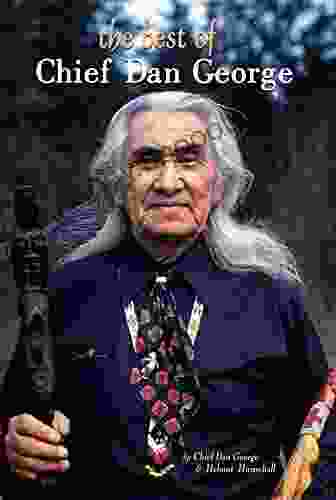
 W.H. AudenDiscover the Wisdom and Spirit of Chief Dan George in "The Best Of Chief Dan...
W.H. AudenDiscover the Wisdom and Spirit of Chief Dan George in "The Best Of Chief Dan... Jesus MitchellFollow ·16.4k
Jesus MitchellFollow ·16.4k Joseph FosterFollow ·10.1k
Joseph FosterFollow ·10.1k Tony CarterFollow ·11.7k
Tony CarterFollow ·11.7k Ervin BellFollow ·8.4k
Ervin BellFollow ·8.4k Chadwick PowellFollow ·5.1k
Chadwick PowellFollow ·5.1k José MartíFollow ·6k
José MartíFollow ·6k Harry HayesFollow ·11.3k
Harry HayesFollow ·11.3k John Dos PassosFollow ·9k
John Dos PassosFollow ·9k

 Finn Cox
Finn CoxEmpowering School-Based Professionals: A Comprehensive...
: The Role of School-Based Professionals in...

 F. Scott Fitzgerald
F. Scott FitzgeraldThe Santa Fe Trail Twentieth Century Excursion: A...
Get ready to embark on an...
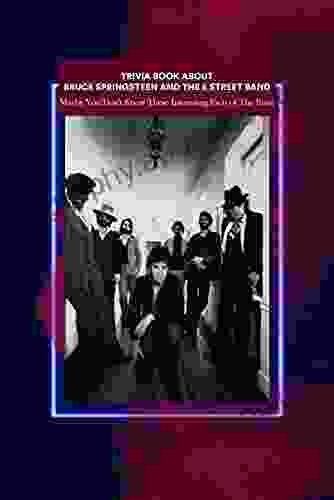
 Kendall Ward
Kendall WardThe Ultimate Trivia Guide to Bruce Springsteen and the...
Bruce Springsteen...
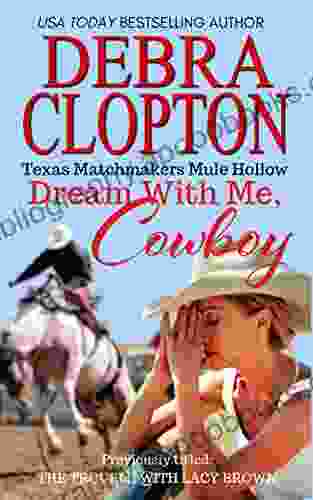
 Jedidiah Hayes
Jedidiah HayesThe Trouble with Lacy Brown: Texas Matchmakers - A...
Prepare to be swept...
4.4 out of 5
| Language | : | English |
| File size | : | 1069 KB |
| Text-to-Speech | : | Enabled |
| Screen Reader | : | Supported |
| Enhanced typesetting | : | Enabled |
| Word Wise | : | Enabled |
| Print length | : | 184 pages |
| X-Ray for textbooks | : | Enabled |




